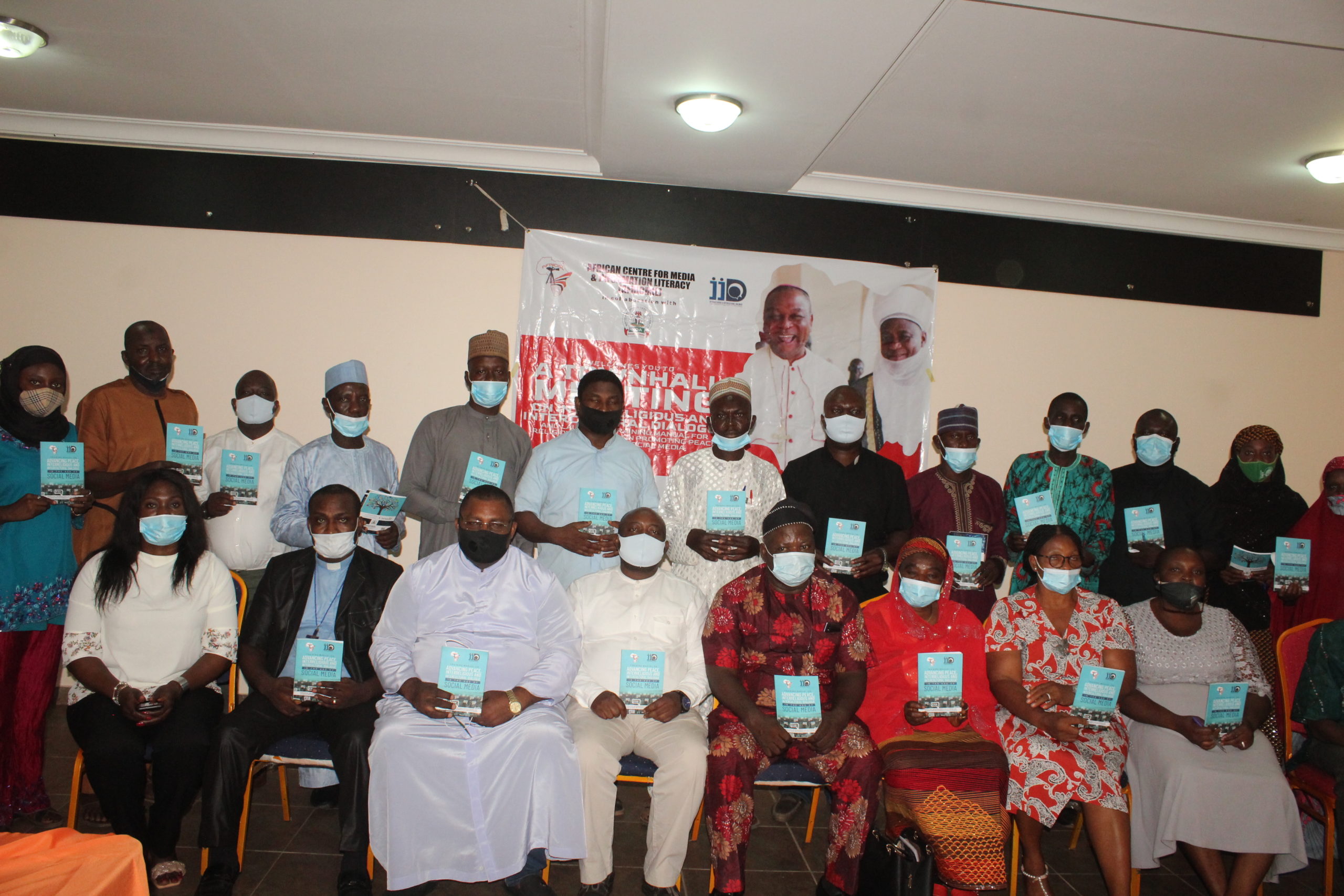By Doyin Ojosipe
The African Centre for Media and Information Literacy (AFRICMIL), has called on religious leaders in Benue State to engage the tools of Media and Information Literacy (MIL) to avert ethno-religious crises in society.
Dr Chido Onumah, Coordinator of AFRICMIL, on Monday, made the call at a townhall meeting and the launch of MIL Interreligious and Intercultural Dialogue manual for religious leaders on promoting peace in the age of social media.
He said having the knowledge of MIL was helpful more than ever before as the Nigerian society is greatly polarised along a variety of fault lines,
He however noted that none of the fault lines had threatened the peace and stability of the country more than religion. “The adherents of Christianity and Islam are endlessly battling for supremacy in all aspects of national life,” he said.
Onumah who was represented by AFRICMIL’s Senior Program Officer, Mr Godwin Onyeacholem, said the advent of social media worsens the scenario, as the new media is being used to promote fake news and hate speech that fuel ethno-religious crisis.
“The potential for intense religious crises is even more obvious in this age of internet technology where websites, blogs and social media platforms are routinely deployed to disseminate all kinds of fake news and hate messages targeting other religions and cultures,” he noted.
According to him, MIL will enable people to interpret and make informed judgments as users of information and media, as well as to become skilful creators and producers of information and media messages.
“It is, therefore, critical that religious leaders, who play a teaching and guiding role in their communities, are able to critically analyse information and news media content, understand risks and opportunities associated with the internet, and become responsible and informed consumers and transmitters of information and opinion”, he added.
Onumah said the town hall meeting was part of the organisation’s peace and inter-religious and intercultural dialogue project being supported by the Canada Fund for Local Initiatives (CFLI).
In his presentation, Rev. Fr. Emmanuel Ejeh, Coordinator, Justice Development and Peace Commission (JDPC), said it was as fact that social media was being harnessed as a breeding ground for extremists to recruit religious and ethnic bigots as well as terrorists, and cause division.
In his words, “The disadvantages of social media is that it is a breeding ground for extremist views and hate speech. The volume, variety and velocity of information available through social media has introduced new challenges for initiating and sustaining peace talks. Conflict parties sometimes use social media to leak information, spread disinformation or promote divisiveness, hate, violence, and religious bigotry/extremism.”
He pointed out that as religious leaders having the knowledge to navigate the media will be of immense help in nipping an avoidable crisis in the bud.

AFRICMIL Staff and Female Participants at the Inter-religious and Intercultural Dialogue in Makurdi, Benue State, February 15, 2021
He stated that the social media has its positive side which has been found to be really important as a mobilizing force driving debates, diplomacy, social movements, political change, and showcasing diverse views and voices.
On her part, Hajiya Hauwa Isa, Chairperson of the women wing of Jamaatul Nasril Islam, Benue State, said women especially, needed to be reoriented on the importance of instilling in their children the culture of love and tolerance.
She explained that it is believed that women are used to picking news which sometimes is not verified, while unconsciously instructing their children in line with the information. She said this attitude had preconditioned the mind of children when they become adults to hate others without ever knowing them.
She blamed the media for magnifying certain news which fuels disaffection among Nigerians. She called for continuous faith-based dialogue in tackling religious crises in the country.
Addressing participants, the DG, National Orientation Agency, Garba Abari, who was represented by Mr Richard Audu, Director of NOA, Benue State, said religious crises in Nigeria were usually fuelled by politicians who are desperate to win election by all means to the detriment of the fragile peace in the society.
Abari said one of the ways to address the continuous ethno-religious crises was to teach the values of dignity of labour and tolerance from the elementary school.




